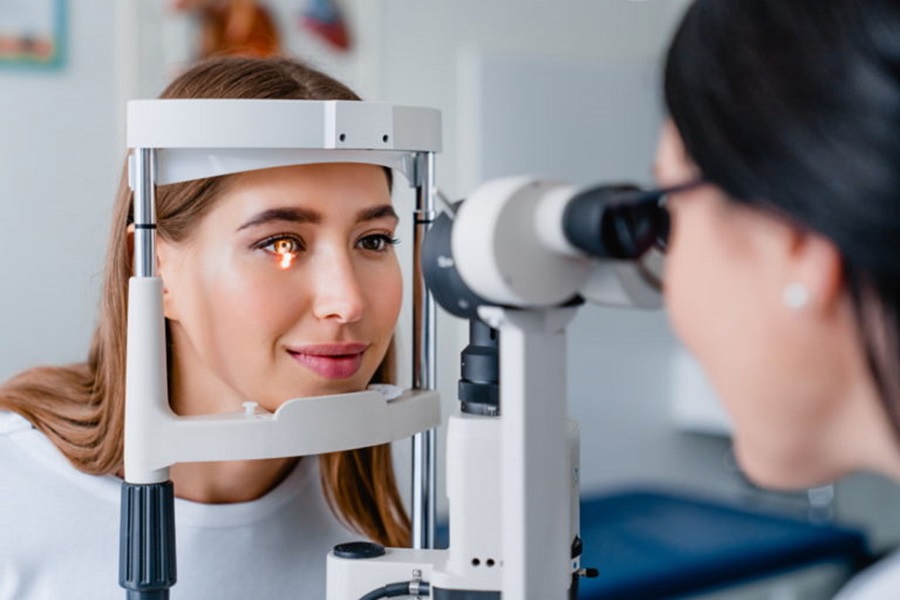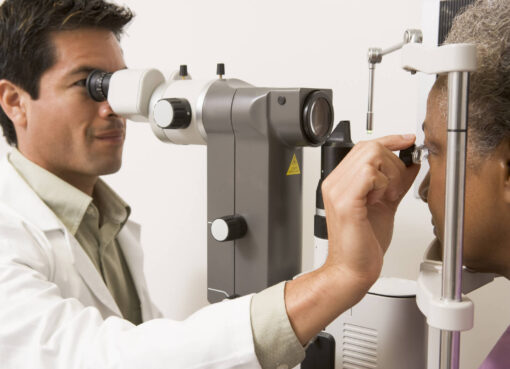When it comes to maintaining your overall health, scheduling an eye exam in Louisville should rank high on your priority list. Beyond ensuring you have clear vision, regular eye exams play a critical role in detecting underlying health conditions and protecting your long-term well-being. Whether you’re seeking a routine check-up or specialized vision care, understanding the available services and options in Louisville will help you make informed decisions about your eye health.
In this guide, we’ll explore why eye exams matter, the types of tests involved, how to find the best optometrists in Louisville, and ways to make eye care affordable.
Why Eye Exams Matter: The Importance of Regular Check-Ups
Eye exams aren’t just about updating your glasses prescription—they’re a window into your overall health. Routine check-ups can detect issues early, often before symptoms even appear.
Key Benefits of Regular Eye Exams
-
Early Detection of Health Conditions: Comprehensive eye exams can reveal signs of diabetes, hypertension, and even certain cancers. Optometrists often identify these conditions during a routine evaluation, giving you a head start on treatment.
-
Preventing Vision Loss: Many eye diseases, such as glaucoma or macular degeneration, progress slowly and without noticeable symptoms. Regular screenings can catch these issues early, preventing irreversible damage.
-
Optimizing Performance: Clear vision is essential for work, learning, and day-to-day activities. Periodic exams ensure you’re seeing the world at your best.
The American Optometric Association recommends eye exams every one to two years, depending on your age and risk factors. For children, regular exams are especially important for detecting vision problems that can affect learning and development.
As important as eye exams are, it’s equally essential to understand the types of tests that may be included in your visit. Each test serves a specific purpose in ensuring your eyes—and your health—are in great condition.
Types of Eye Exams: Tests and Procedures Explained
Eye exams are more than reading letters on a chart. Optometrists use a variety of tests and tools to assess your eye health comprehensively. Here’s a breakdown of the most common procedures:
Visual Acuity Test
This is the classic eye chart test, where you read letters of varying sizes to measure how well you see at different distances.
Refraction Test
If you need corrective lenses, this test determines your precise prescription. Your optometrist will use a device called a phoropter to find the lens strength that gives you the clearest vision.
Slit-Lamp Examination
A slit lamp allows your optometrist to examine the front part of your eye, including the cornea, iris, and lens. This test helps identify conditions like cataracts, corneal injuries, or dry eye syndrome.
Dilated Eye Exam
For a closer look at the retina and optic nerve, your optometrist may use dilating eye drops to widen your pupils. This test is crucial for detecting retinal diseases and other serious conditions.
Glaucoma Screening
Glaucoma is a silent condition that can lead to blindness if left untreated. Optometrists use tonometry to measure the pressure inside your eye, helping to detect this disease early.
Color Blindness Test
A color vision deficiency test identifies problems distinguishing between certain colors—essential for specific jobs and daily tasks.
With a variety of tests available, optometrists can build a complete picture of your eye health. But how do you find the right provider to handle your needs? Let’s look at the best ways to choose a trusted optometrist in Louisville.
Finding Local Providers: Choosing Louisville Optometrists Wisely
Louisville offers a wide selection of eye care providers, but how do you choose the right one? Here are a few tips to help you make the best decision:
1. Look for Credentials
Check whether the optometrist is licensed and board-certified. Their education and training should align with the type of care you need, from routine exams to specialized treatments.
2. Read Reviews
Patient reviews provide valuable insights into an optometrist’s approach, customer service, and office environment. Search for feedback on platforms like Google, Yelp, or Healthgrades.
3. Consider Location and Hours
Convenience matters. Opt for a clinic close to your home or workplace with flexible hours to fit your schedule.
4. Explore Services
Not all optometrists offer the same services. If you require specialized care, such as treatment for diabetic retinopathy or pediatric eye exams, ensure the provider has expertise in that area.
5. Schedule a Consultation
Many clinics offer initial consultations to discuss your needs and expectations. Use this opportunity to assess their professionalism and communication style.
Once you’ve identified a provider, it’s worth exploring whether they offer specialized vision services. These services cater to specific needs and can enhance your overall eye care experience.
Specialized Vision Services: Advanced Care for Specific Needs
Some individuals require more than a basic eye exam. Fortunately, many Louisville optometrists offer advanced vision services tailored to specific conditions.
Pediatric Eye Care
Children’s vision needs are unique. Specialized pediatric optometrists focus on issues like lazy eye (amblyopia), crossed eyes (strabismus), and vision therapy for learning-related challenges.
Low Vision Services
For individuals with significant vision loss that can’t be corrected with glasses or surgery, low vision services provide tools and techniques to enhance daily living.
Contact Lens Fitting
Not all eyes are suited for traditional lenses. Specialists in contact lens fitting can recommend options like toric lenses for astigmatism or scleral lenses for dry eye syndrome.
Surgical Co-Management
Some clinics partner with ophthalmologists to manage care before and after eye surgeries, such as LASIK or cataract removal. This ensures seamless treatment and recovery.
Treatment for Chronic Conditions
From glaucoma to diabetic retinopathy, Louisville optometrists offer tailored care plans to manage chronic eye diseases effectively.
With so many specialized services available, it’s clear that Louisville optometrists are equipped to handle a wide range of vision needs. But what about affordability? Let’s explore how to make eye care fit within your budget.
Insurance and Payment Options: Making Eye Care Affordable
Eye care is essential, but it doesn’t have to break the bank. Many Louisville optometrists accept various insurance plans and offer flexible payment options to make eye exams accessible.
1. Insurance Coverage
Most vision insurance plans cover annual eye exams, basic lenses, and frames. Check with your provider to understand your benefits and out-of-pocket costs. Some popular insurers in Louisville include:
-
VSP (Vision Service Plan)
-
EyeMed
-
Humana Vision
2. Discount Programs
If you don’t have vision insurance, ask about discount programs or packages. Many clinics offer special rates for uninsured patients or family bundles for multiple exams.
3. Flexible Spending Accounts (FSA) and Health Savings Accounts (HSA)
FSAs and HSAs can be used to pay for eligible eye care expenses, including exams, glasses, and contact lenses. Take advantage of these tax-free funds to save money.
4. Financing Options
For more expensive treatments, such as LASIK or specialty lenses, many clinics offer financing plans with manageable monthly payments.
By exploring these options, you can ensure your eye care needs are met without financial stress. Now that we’ve covered the practical aspects of eye care, let’s summarize how you can take the first step toward better vision.
Take Charge of Your Vision Today
Your eyes are one of your most valuable assets—don’t take them for granted. Regular eye exams not only ensure clear vision but also safeguard your overall health. From basic screenings to advanced care, Louisville offers a wealth of options to meet your eye care needs.
Whether it’s time for a routine check-up or you’re exploring specialized services, finding the right provider in Louisville is key to maintaining your vision for years to come. Remember, prioritizing your eye health today means seeing the world more clearly tomorrow.





